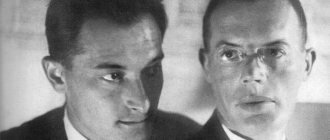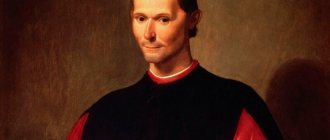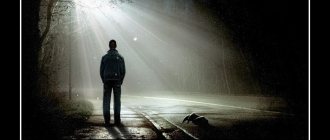Quotes about God
Nowadays, people do not notice how they hurt others. There are many cases where people did evil to others out of envy. Quotes about God, in accordance with the canons of Orthodoxy, will be useful to believers. They will make you rethink many things.
Find out the opinions of great and famous people about faith and God. Their beautiful sayings will not leave you indifferent. By reading quotes, you can further strengthen your faith and successfully overcome all the difficulties that have happened on your life's path.
God said: “Fear the tears of a person offended by you, because he will ask me for help, and I will help.”
We think that God sees us from above - but he sees us from the inside. Gilbert Sesbron.
Man is responsible for God. Andre Gide.
God is inside each of us, and not in imaginary external attributes... The main thing is faith in him.. God loves everyone and everything as they are, no matter what.
Many believers love their feelings for God more than God himself.
Don’t ask God for an easy life, but ask him to make you stronger. John Fitzgerald Kennedy.
It is easy to understand God unless you try to explain him. Joseph Joubert.
Happiness is when you thank God more often than you ask!
Statements of famous people about God and faith
Reading Time: 4 min.
What do famous and talented people think about the spiritual aspect of life? We have collected for you quotes from respected and wise personalities of our time about faith in God, and how it influenced their lives and activities.
Fyodor Dostoevsky, writer
- The most serious problems of modern man arise from the fact that he has lost the sense of meaningful cooperation with God in His purpose for humanity.
- God! What a book, this Holy Scripture, what a miracle and what power given to man with it!... And how many secrets, resolved and revealed! I love this book! Death to the people without God's Word, for the soul thirsts for this word and every beautiful perception.
Honore de Balzac, writer
- To doubt God means to believe in Him.
Albert Einstein, physicist
- I believe in God as a Person and in all conscience I can say that I have never been an atheist for a single minute of my life.
- The basis of all scientific work is the belief that the world is an orderly and knowable entity. This belief is based on religious feeling.
Henri Becquerel, physicist
- It was my work that led me to God, to faith.
Galileo Galilei, scientist
- In the actions of nature the Lord God appears to us in a manner no less worthy of admiration than in the divine verses of Scripture.
Jean-Jacques Rousseau, philosopher, scientist
- I confess that the greatness of Holy Scripture fills me with amazement, and the holiness of the Gospel speaks to my heart. How insignificant are philosophical works, despite all their brilliance, in comparison with the Holy Scriptures! Can any other work, in so short a time, so exalt itself, being the work of an ordinary man?
- Is it possible that the One about whom the Holy Books tell was nothing more than a simple man? Do we really hear in them the voice of a dreamer or an ambitious sectarian? What beauty, what purity in His being! How much captivating kindness is in His teaching! What a height in His rules! What depth of wisdom is in His speeches! What presence of the Spirit, what insight and faithfulness in His answers! What mastery over your passions! Where can I find a person, a sage, who could act like this, suffer and die, without showing weakness and vanity? Yes, if Socrates lived and died as a philosopher, then Jesus Christ lived and died as God.
Eugene O'Neill, American playwright
- When people create gods for themselves, they are deprived of God.
Johann Goethe, writer
Let scientific culture develop, let natural science prosper in depth and breadth, let the human spirit improve as much as it likes, but it will not surpass the heights and moral culture of Christianity, as it shines and shines in the Gospels.
Blaise Pascal, French mathematician and physicist
- Without the teachings of Christ, people would eat each other, the world would become hell and become corrupted.
Heinrich Heine, writer
- I have already spoken about the transformation that, in relation to divine affairs, took place in my soul. I owe my sanctification to simply reading one book. - Books? Yes, and this is an old, very old book... and this book is simply called the Bible. It is rightfully called the Holy Scripture.
Theodore Roosevelt, US President
- Almost every one of those people whose activities produced results based their life path primarily on the teachings of the Bible.
Alexander Pushkin, poet
I think that we will never give the people anything better than Scripture... to find all human life in it. Religion created art and literature, everything that was great since ancient times!... Without this, there would be no philosophy, no poetry, no morality. The British are right that they give the Bible to children... My children will read the Bible in the original with me... The Bible is universal... This is the only book in the world: it has everything.
Marina Tsvetaeva, poetess
- What can we say about God? Nothing. What can we say to God? All.
Martti Larni, Finnish writer
- Many believe in God, but not many believe in God.
Isaac Asimov, American science fiction writer
- The Lord loves us all, but is not delighted with any of us.
Kazimierz Brandys, Polish writer
- Previously, they were looking for evidence of the existence of God, now we have to look for evidence of the existence of man.
Jacques Maritain, French philosopher
- The greatest merit of the Church is that it is holy, although it consists of sinners.
Herbert Agar
- The truth that sets us free is most often the truth that we do not want to listen to.
Benjamin Franklin, American statesman
- An atheist is an unhappy child who tries in vain to convince himself that he has no father.
Cardinal Stefan Wyszynski
- People decided that there is no God, but their decision is not binding on God.
Emerson Fitipaldi, Formula 1 racing driver
Jesus Christ is so great and I am so small that I have no words to describe Him. I know for sure that He radically changed the course of the history of our civilization. The entire history of mankind is divided into two eras: before and after the Nativity of Christ. Jesus is number one. He is the most powerful and important person who has ever lived on the planet. If we followed His teaching even 20%, the world would be a much better place.
Ronaldo, football player
- I am considered the best footballer in the world, the number one footballer. But the greatest man in the world is Jesus Christ, the Son of the living God. He is the true number one.
Napoleon Bonaparte, French Emperor
- I know people and I can say that Jesus Christ was not just a man. He cannot be compared with any of the people who lived on earth. Alexander the Great, Julius Caesar, Charlemagne and I founded empires. However, what was at the heart of our ingenious creations? Force. Jesus Christ founded His empire on love, and today millions of people are ready to give their lives for Him.
- The Gospel is not a book, but a living being with action and power that conquers everything that resists it. The soul that admires the beauty of the Gospel no longer belongs to itself. God owns it entirely; He directs her thoughts and abilities, she belongs to Him. The gospel has some mysterious power, something amazingly powerful; warmth that affects the mind and enchants the heart... When this Book lies on my table, ... I do not get tired of reading it and always read it with the same pleasure.
- The Bible is an extraordinary book. She is a Living Being who conquers everything that opposes her.
Isaac Newton, physicist
- The Bible contains more evidence of authenticity than all of secular history.
Abraham Lincoln, US President
- I believe that the Bible is God's best gift to man. Everything beautiful from the Savior of the world is transmitted to us through this book.
- Never say that the Lord is on your side; It’s better to pray that you yourself will be on the side of the Lord.
Statuses about God
God is an extremely controversial and contradictory figure, especially in our age of skeptics and materialists. In different religions, He acts both as an all-forgiving person and as a punisher for any wrongdoing. Its essence is polysemantic and incomprehensible, and its existence in general is a source of incessant strife and quarrels.
You can find a variety of statuses dedicated to the role of the Divine figure in people’s lives on our website. Choose the one that mirrors your views and beliefs!
If God wanted to be a great mystery, he would not have created babbling streams and whispering pines.
God forgives a lot, but people never forgive.
What you are is God's gift to you. What you become is your gift to God.
Always wish your offender happiness and health, and the Lord himself knows what to give him.
God created pleasure, the devil created pain.
Love the Lord and do whatever you want.
Whoever treats loved ones badly does not know who God is, because he is love.
People blame the Lord for all their worries and tears, but they never say words of gratitude for smiles and happiness.
If a person gives himself completely to the Lord, then the Almighty will give himself to him.
When the Lord takes something away, don't miss what he gives in return!
What God sent to the shy thief and Ostap Bender from The Twelve Chairs
The novel “The Twelve Chairs” by Odessa residents Ilya Ilf and Evgeny Petrov has long been firmly established in our everyday life. Many people use quotes from this work, written in 1927 and published in 1928, without even realizing it. “I will command the parade”, “a sultry woman, a poet’s dream”, “we are strangers at this celebration of life” and many other remarks of the heroes migrated into everyday communication, both in Russia and in Ukraine and in other republics of the former USSR.
A festive dish for Little Russians and a Jewish “obligation” for American politicians
One of the scenes of the novel, which could not be avoided in the film adaptations of “The Twelve Chairs,” describes the visit of the main character, Ostap Bender , to the caretaker of the 2nd house of Starsobes, Alexander Yakovlevich , whom the authors presented as a “shy thief” and a “blue thief.”
“Shy Alexander Yakovlevich immediately, without delay, invited the fire inspector to dine with what God sent. On this day, God sent Alexander Yakovlevich for lunch a bottle of bison, home-made mushrooms, minced herring, Ukrainian borscht with first-class meat, chicken with rice and dried apple compote,” wrote Ilf and Petrov.
A moment earlier, Bender, in the guise of a fire inspector, observed over-aged “orphans” who were devouring sauerkraut from a barrel - while old women under the care of social security were treated to the cheapest porridge almost in motor oil and slogans “Meat is harmful” .
Interestingly, in two classic film adaptations of the novel - by Leonid Gaidai and Mark Zakharov - the list of dishes that God sent to the “blue thief” Alchen has been changed. Gaidai added “black grainy caviar” to it.
But at Zakharov’s lunch menu, mincemeat and rice disappeared, but fresh vegetables and homemade soufflé appeared, and mushrooms were replaced with homemade pickles.
It is noteworthy that in both film adaptations they ignored compote from dried apples.
Stargorod, where the described events take place, is associated by many literary scholars and historians with Starobelsk, now located in the Ukrainian-controlled part of the Luhansk region. It was to this city that the young Gudok correspondents Ilf and Petrov were sent at one time. However, the dinner described by Ilf and Petrov betrays the Odessa past of the writers.
Not an easy drink
One of the first signs of the “Odessa character” of Alexander Yakovlevich’s dinner is, oddly enough, a bottle of zubrovka. Modern Poles consider this tincture itself exclusively their invention. But here we can recall a remarkable legal dispute between two Polish companies in 1927 over the right to the name “Zubrowka” as a trademark. Not only lawyers, but also botanists and philologists were brought to trial. The latter pointed out that in Polish this name could be given to a tincture made from wool or any part of the body of a bison, but not from grass, which the Poles even call turovka. And if they called it zubrovka, then the tincture would be called żubrowianka, żubrówczanka or żubrówkówka. The word “Zubrovka” itself is dialectal and is characteristic of those territories where Belarusians lived.
And eat fish. What did the great Shevchenko eat for lunch?
©
RIA Novosti, Yuri Ivanov / Go to photobank
The very history of zubrovka as a drink begins at the end of the 19th century. The name “Zubrowka” was patented in the German patent office in 1894 by the Gniezno vodka factory of Boleslav Kasparovich . A little earlier, in the late 80s of the 19th century, zubrovka began to be produced in the Russian Empire. You can read more about the history of this tincture in a wonderful article by the historian of the material culture of Belarus Ales Bely .
We are interested in the fact that neither the Poles nor the Belarusians were represented in any serious way in the vicinity of Starobelsk. Or maybe it’s the powerful Polish diaspora in Odessa, where during the First World War a separate Polish detachment was even formed. During the Civil War, the Cheka carried out mass arrests of Poles twice - in 1919 and 1920. The brightest representative of the Polish diaspora in Odessa is the writer Yuri Olesha , a descendant of a Polonized Belarusian family. True, Olesha himself was born in Elisavetgrad.
In general, the zubrovka on the table of the “blue thief” is a tribute to Odessa’s past. As was another dish of his lunch.
Purely Odessa recipe
If homemade mushrooms are a dish widespread throughout the Soviet Union, and it could well have been made in the north of the Lugansk region, then the herring mincemeat that follows it in the description would be very problematic to prepare in Starobelsk. The herring still needs to be delivered there. For obvious reasons, there are no herring in the Aidar River, which flows through the city.
But in Odessa, a significant part of the population of which were Jews, there is no shortage of herring. Actually, forshmak is often called a purely Odessa dish. Sometimes formshak makes even Italian chefs grab their axes.
Those who want to prepare this dish the way they do it in Odessa can be recommended to turn to the experience of a connoisseur and experienced chef Boris Burda . Fortunately, his recipe is available on the Internet.
“Pashkets in kahli”: how Little Russian nobles treated them in the 18th century
/ Go to photobank
It is noteworthy that originally herring forshmak was not a Jewish, but an East Prussian dish. In Russian specialized literature, a dish similar in preparation technology was first mentioned in 1816 in Vasily Levshin’s “Russian Cookery”. There it is called “body”.
“Having picked pike or pike perch from the bones, beat them with the butt of a knife; stir the flour in water and moisten it as you continue whisking. Knock down the body, put it in a dampened napkin, tie it and boil it in water. Once cooked, chop finely, add some boiled onion and pepper, and add salt,” advises Levshin.
But in the “Economic book for young and inexperienced housewives, compiled by A. Shambinago ”, published in the Military Printing House in St. Petersburg 44 years later, a recipe is already given called “Farshmak from herring with sour cream,” for which a young and inexperienced housewife will need: one herring, a quarter of a pound of sour cream, an eighth of a pound of Russian butter, one onion and five pieces of crackers.
Borscht and rice
Whose borscht? Ukrainians have decided to appropriate an ancient Russian dish through UNESCO
©
RIA Novosti, A. Usanov / Go to photobank
The publication Ukraina.ru has written about borscht more than once: they remembered its history and all sorts of outlandish varieties (for example, beloved by Taras Shevchenko ). The emphasis on the Ukrainian character of borscht allows us to assume that the thieving supply manager, despite his love for forshmak, if he was a Jew, then clearly did not adhere to the covenants of his ancestors. After all, the variety of borscht that was called Ukrainian, among other things, involves the addition of pork cracklings.
By the way, Ukrainians were also a noticeable part of the population of Odessa. However, the region of the Lugansk region where Starobelsk is located is distinguished precisely by the fact that Little Russians have lived there since ancient times.
But another “hint” to the Odessa origin of the table of the “shy thief” is given, oddly enough, by chicken with rice. In the USSR, rice began to be grown in the late 20s - early 30s, when “The Twelve Chairs” had long been published. The first rice plot was put into operation in 1929-1930. Its area was 57 hectares, and the rice yield in the first year of cultivation was 21.3 c/ha. Only in 1931 the All-Union Scientific Research Institute of Rice Farming was opened in Krasnodar. Much later - already in the early 60s of the twentieth century, under Nikita Khrushchev , rice began to be grown in the Northern Crimea and other parts of the USSR. In general, getting rice in Starobelsk was a non-trivial task. But in the port city of Odessa, where merchant ships from all over the world visited, this was quite feasible.
“It was about Griboyedov.” “Literary Cooking” visiting Bulgakov
©
RIA Novosti, / Go to photobank
But a drink like compote made from dried apples cannot be tied exclusively to one area or another, although literary scholars point out that near Starobelsk - in Bondarovka, where the young correspondents Ilf and Petrov visited - there was a collective gardening enterprise for growing apples. But getting dried apples is not a problem in Odessa either. The dried fruit compote itself (or simply “drying”) has been known since the times of Ancient Rus', when it was called uzvar.
Be that as it may, the caretaker described by talented Odessa residents is still more alive today than anyone else alive. To this day, you can find “blue thieves” and “shy thieves”, generous with pickles for those checking their institutions.
Wise sayings of the holy fathers
Wise sayings of the holy fathers, their quotes are something that can enrich the spiritual life of a believer. Read them when you feel that you need support from above, when you are losing hope of changing the situation for the better. Enjoy selected phrases with deep meaning whenever you have free time.
Reading quotes from the Holy Fathers can complement the study of Holy Scripture, other important works of witnesses to the life of Jesus, those who follow his truth, and strive to convey it to other Christians. Discover faith from a new side, use the available tools for spiritual development.
The best time for the word of God is in the morning, the lives of the saints - after lunch, the holy fathers - shortly before bedtime. Saint Theophan the Recluse.
Through the confessor, the Holy Spirit acts in the sacrament, and therefore when you leave the confessor, the soul feels renewed. Venerable Silouan of Athos.
What you now throw into the hand of a beggar, you will later find in the hand of the Judge. Saint John Chrysostom.
Love is the perfection of people in this life. Venerable Isaac the Syrian of Nineveh.
While staying in your cell, keep the following three activities: handicrafts, reading psalms and prayer. Venerable Anthony the Great.
The enemy is always at war with all people, striking them with evil and unclean wishes. Venerable Ephraim the Syrian.
Do not lend your ear to hear bad things (about others); but be condescendingly compassionate towards people, and you will live. Anthony the Great.
By nature the soul is dispassionate. Isaac the Syrian of Nineveh.
Without temptation, no one can ever receive a crown. Therefore, when we are tempted, let us give thanks to the Lord for everything, as our benefactor and Savior... Nile of Sora.
Avoid argument - there is no humility in it. Learn to conduct a dialogue - listen and hear. Archpriest Valentin Mordasov.
If a person sincerely prays and does not receive what he asks for, it means the Lord is preparing for him more and better than he asks for. Saint John Chrysostom.








